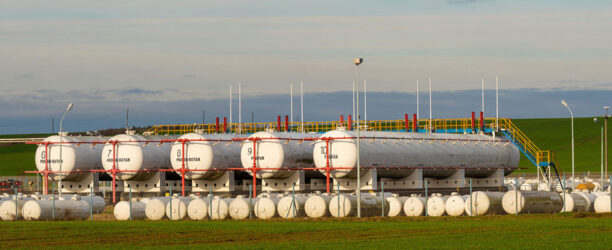Propane Growth Isn’t a Sprint – It’s a Five-Year Climb

Running a propane company means making daily decisions – route changes, service calls, deliveries – but how often do you stop to think about your company as it would be five years down the road? While it’s tempting to focus only on the next quarter or busy season, propane businesses that build long-term stability take a different approach. They think in blocks of time, especially in five-year cycles.
This proactive method of evaluating and planning allows you to make smart, steady progress without getting caught up in every small market swing. You still respond to short-term needs but keep moving toward long-term goals and stay focused on the future.
Why Five-Year Planning Works
Looking at your growth in a five-year block gives you time to set goals that are big enough to matter but still within reach. Year-to-year planning tends to chase quick wins or react to immediate needs and problems. Five-year thinking helps you build a business that remains strong through price swings, labor changes, and new technology.
It also allows you to set timelines for significant changes, such as building a bulk plant, upgrading fleet systems, or expanding into a new delivery area. Instead of rushing to achieve those bigger goals, you work toward them piece by piece.
Start With a Baseline, Not a Guess
Before you set a five-year plan, you need to know where you’re starting from. This means looking hard at your current operations, financials, and customer base. How many gallons are you delivering per driver? How many tanks are active? What’s your average customer lifespan? The better you understand your baseline numbers, the more realistic your goals will be. You want your plan to push you, but it must be practical and accurately reflect how your business works today.
Set Clear, Specific Goals by Function
A strong five-year plan doesn’t just say “grow the business.” It breaks growth down into smaller, targeted components. That includes goals for:
Operations: Routes, fleet size, service area
Sales: Number of new accounts, retention rates, contract pricing
Staffing: Hiring timelines, training plans, leadership structure
Financials: Profit targets, capital investment, debt reduction
You don’t need to write a huge report. But each area of your business should have a clearly written plan, even if it’s a rather simple one.
Plan for Cycles, Not Straight Lines
Propane businesses move in cycles – peak delivery season, service slowdowns, price shifts, and even staff turnover. A five-year plan makes room for that. It helps you consider where you’ll need more staff, when to invest in equipment, and how to keep cash flow steady through quiet periods.
You can schedule team training or tank inspections when you know that slower months are coming. When you expect volume spikes, you can plan fleet upgrades or driver hires six months early instead of scrambling at the last minute.
Review Each Year Against the Big Plan
Every year, check how you’re doing against your five-year plan. Did you hit your gallon goal? Did that new hire turn into a solid team member? Are expenses trending in the right direction?
You don’t need to rewrite the plan each time – review it, adjust where needed, and keep moving. This keeps your team focused on more than this month’s sales or service tickets. With the overall big picture in the forefront of everyone’s mind, your team will strive to make progress together in the same direction.
Where Big Growth Starts Small
When you think in five-year blocks, you make better decisions for the long-term future of your company. It helps avoid burnout, bad hires, rushed upgrades, and missed growth opportunities. You shift from running the business daily to truly building something strong and stable. You go from being reactive to instead being proactive.
Five-year planning doesn’t mean predicting the future – it means shaping it. If you want to grow your business with less stress and more control, thinking in cycles gives you that edge. It helps you stay ready and prepared for what’s coming, even when the road gets bumpy. The propane businesses that last are the ones that plan for more than just the following season. They’re the ones thinking five years ahead – and it shows.














